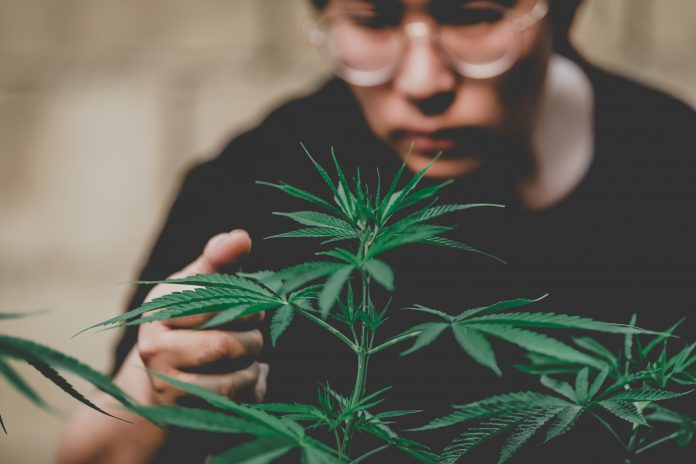Professor Trevor Jones, Chair at the European Medicinal Cannabis Association (EUMCA), speaks to Nishat about their plans for EU patient access to medicinal cannabis
When I spoke to Professor Trevor Jones on an unassumingly rainy day, it was just before noon. We immediately begun to discuss the indecipherable amount of activity related to medicinal cannabis, and drug development precedents set in the past.
What are countries doing about legality and production? What is the general consensus on a globalised level about what to do next? Where is the line between hype and functional reality?
Countless experts can theorise on how these negotiations of permissibility will go. With his decades-long experience in biotech, the pharmaceutical industry and academia, Professor Trevor Jones is well-poised to give us some grounded explanations.
At the Wellcome Foundation, you were instrumental for making drugs like AZT accessible?
“You can imagine the complications that occur when you develop a new drug for a field like HIV/AIDS with all the controversy at that time; particularly the pricing of AZT – especially for the developing world where people don’t have the money to spend and there’s no effective national health service.
“The important thing was to try and find ways through those difficulties to bring the medicines that are needed to the people who need them.”
Do you see UK/EU medicinal cannabis as a similar matter of access and inaccessibility?
“No, the economic issues are not relevant to access to medicinal cannabis in the developed world, particularly Europe. The fact is that either people have the cash or can access approved medicines through health authorities or health organisations, for example the National Health Service here in the UK, the Dutch medical authorities etc. The real question is what are we talking about? What do we mean by the words “medicinal cannabis”?
“On one hand, there’s a bunch of people talking about just smoking pot for their perceived medical condition. Some say well let’s have standardised extracts of marijuana. Others want access to the individual therapeutically active chemical constituents that are in hemp and in cannabis. There are thousands of anecdotal accounts of the therapeutic value of these different types of cannabis but what we need is properly conducted studies to know which work and which do not.”
You’ve been appointed chair of the EUMCA, so how were you drawn into this field?
“It’s one of those curious coincidences. When I was Director General of the ABPI, one of my jobs was helping Britain establish Science Parks, clusters of research groups. I came across a small company at the former Pfizer R&D site in Sandwich, in Kent, which makes very pure extracts of the CBD component of Hemp. I thought, well this looks very interesting, I don’t know much about the science, let me investigate.
“So, I worked with some people in Austria, we published a few papers on what medicinal cannabis is really about. We wrote about how variable extracts from cannabis, hemp, and marijuana can be – about the hundreds of possible active ingredients and what we know or don’t know about the therapeutic value?”
What do you think will happen for the ethical market of medicinal cannabis, in the next 5 or 10 years?
“We’re talking about an extremely complicated plant extract here, it’s not like extracting Aspirin from willow bark or Quinine from Cinchona. It’s a very complex mixture of substances. So, the starting point is what do we know about the individual constituents? The only thing we know for sure right now, is that pure (and I do mean “pure”) CBD, is effective (and approved by EU Regulatory Authorities) to treat patients, particularly children, with specific epilepsies (the medicine is called Epidiolex); and that a combination of CBD and another ingredient of cannabis, THC, is effective in some patients with Multiple Sclerosis (the medicine is called Sativex).
“What I see happening is that clinical studies on well characterized products in clearly defined patient populations will increase. Hopefully government agencies in Europe, America and elsewhere will sponsor such studies and work with industry and with research organisations, academia etc., so we can actually get some good data., so that people are not fooled into believing that products have benefit for their condition when it is not proven.”
What do you think of medicinal cannabis products that are currently available to buy “over the counter”?
“The latest data that came from a UK organisation, the CMC, involved analyzing 30 different products from different places, including pharmacies. Only 38% of them had ingredients close to what was claimed on the label. In fact, one product had no cannabinoid in at all. When you go to a shop and buy 300mg aspirin tablets, you have the right to expect that each tablet contains the 300mg of aspirin it claims to have in it and that should equally apply to all cannabis products.
“To my mind, this whole area needs cleaning up.
“Patients should have the right to know what they are buying or being prescribed is of proper quality. Currently, there is no real agreement on what analytical methodology should be used to check the quality nor what standards we should set, for instance, for CBD.
“My request of Europe, will be that can we all agree at least what analytical methods should be the standard by which we judge the quality of these products?
“Secondly, I would hope that most people would expect that when they store a medicinal cannabis product in their home (wherever location that may be) that when they actually take this medicine, or nutritional supplement, that it still contains the amount that was in the product when it was made. In other words, its shelf life is okay… it is stable.
“Then we get to the difficult one. The cannabis ingredient CBD is extremely insoluble in water and at the pH of the stomach; so, most CBD products are taken as an oily droplet placed under the tongue, to be absorbed in the mouth. If you just swallow the powder, very little CBD is absorbed. We call this “bioavailability”. The amount of data on bioavailability is extremely poor. Some of the limited data suggests probably 4/5% at most of the drug gets into the body.”
What would the timeline be for Governments to take an analytic method forward?
“With people from Austria and the UK, I have suggested that the European and British pharmacopoeias (and other such EU authorities) take this as a priority and create a monograph. We have potential methodologies that could be agreed, and we could have a summit meeting within the next few months or so, to say anybody interested in this field, come together and agree what this methodology and standards should be.
That could just be an agreement between these people, but I’d like to see that blessed by National Authorities. It should become a European and hopefully American standard. I think we could do that within a year. Surely it is the interest of patients and their carers, that we get this right and that they know whether the product they are taking actually works for their condition?”











